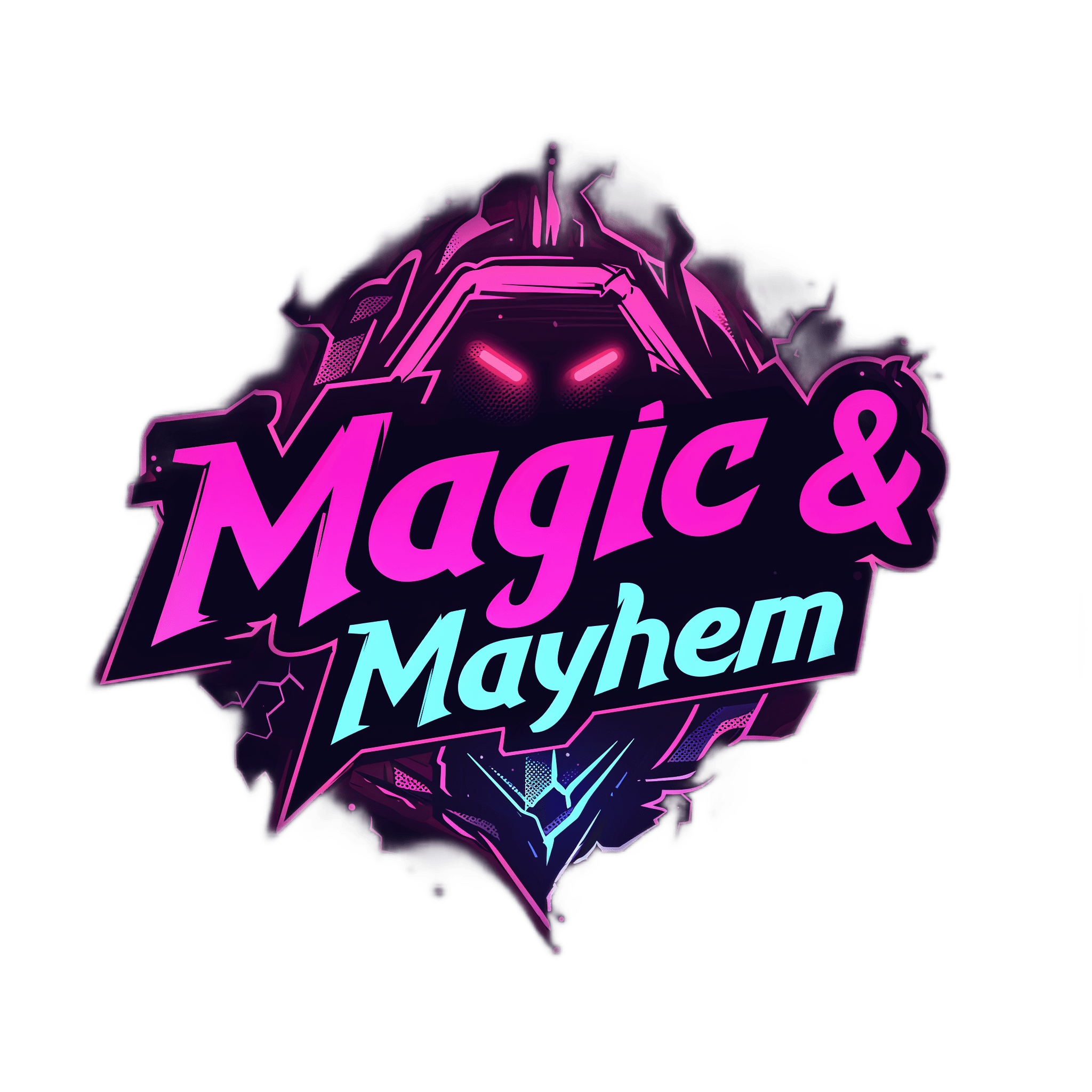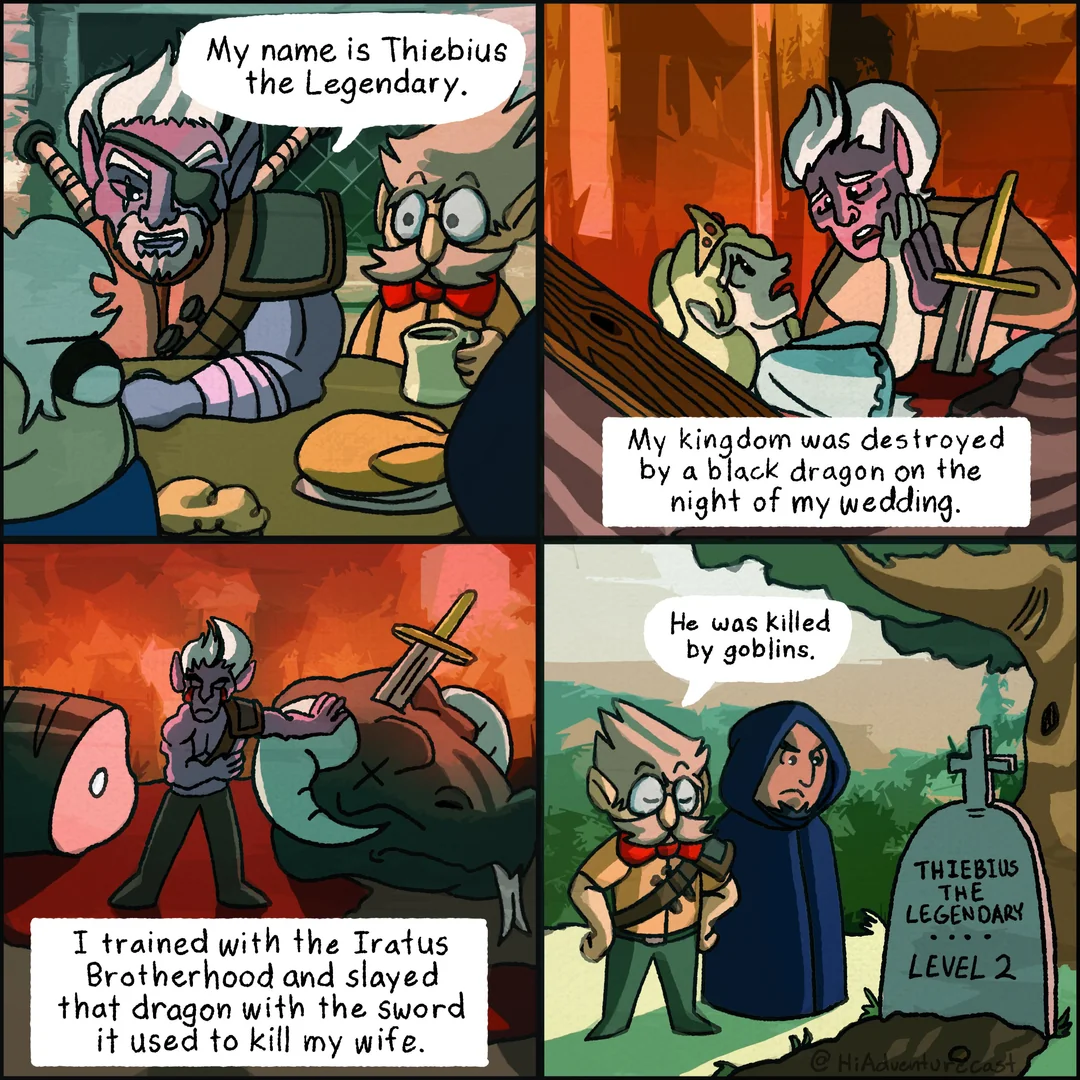You’ve spent countless hours carefully crafting the perfect backstory. Sure, it’s a little wordy at 10 pages, but it’s got heart. You’ve really taken efforts to explore the emotional turmoil of your character’s youth and how that’s shaped them into a powerful, epic adventurer. You have a horde of engaging NPCs that fill their past, so as to provide the DM ample opportunity to pull them into the campaign. You have excruciating detail about your character’s appearance, and you’ve poured out their hopes and dreams into a word processor. Finally, it’s Session 0. You’ve blown off your first born child’s birthday party for this moment, and it’s totally worth it. The time has come to present your masterpiece to the rest of the players. But most importantly, it’s time to present it to your DM, who will no doubt interweave all the complexity and nuance of your tale into the campaign’s main plot, providing a climactic end to your character arc that will make your loins quiver with transcendent narrative indulgence.
Except, that’s not how it goes. No one seems to give a fuck about your backstory. Why would that be? It doesn’t make sense to you. The other players don’t talk about your nuanced reference to a ring your father gave you as a child during your time at the local tavern. Your DM had the perfect opportunity to insert your estranged sister into the plot, but they didn’t. Don’t they realize she’s been on a pilgrimage that would take her through a town only 5 miles from the party on her way to bury the remains of your character’s demigod father in the Valley of Tears? (a location you expertly crafted). You feel frustrated, you feel unfulfilled, and you’re thinking maybe this isn’t the table for you.
Fuck your level 1 backstory: It’s too long, too complex, too restrictive. It sets you up with unrealistic expectations and alienates you from the other players as it instills a subtle undertone of main character energy in you as a player. Let’s discuss an alternative, shall we?
Give me one paragraph. One single, glorious, open-ended paragraph that contains the following elements:
- Your character’s unnamed location of origin
- What your character did before now that’s level appropriate
- What ties your character to the campaign
- And finally, 3 things that stand about your character’s appearance or personality
Want an example? Fine, let’s create a dwarf for the standard trope of the party meeting in a tavern:
Bilby Blackhammer – Male Dwarf
Bilby grew up in a small sea-side town on the coast where he worked as a simple fisherman. He was never satisfied with just being a fisherman, Bilby was always good with a sword, and he sought a life of adventure. When he came of age, Bilby stowed away on a pirate ship bound for <insert starting location of campaign>. When the pirates discovered Bilby, they were quick to discard the dwarf once they reached port. Resolute, Bilby found his way to <starting tavern> in search of adventure. Bilby is clumsy, loyal, and is constantly fidgeting with his long beard.
But what about Bilby’s dead parents? His friends? HIS HOPES AND DREAMS? Well dear adventurer, we have left room for those things to develop DURING the campaign. We have created the narrative leeway we need for Bilby’s story to become part of the larger (and vastly more important) narrative of the party.
By not naming specific people, places, and traumas, we leave room for those specifics to organically develop during play. By creating a level appropriate history, we avoid the main character energy of Bilby the Dragon Slayer and instead have the approachable level 1 character of fisherman who dreams of bigger things.
As we create a simple entry point to the campaign, we create the motivation for our character to join the new party. By giving a few memorable things about Bilby, we give tropes to be used during roleplay that help cement Bilby’s character with the table. The table may not pick up on Bilby’s subtle angst around the camp fire, but they will recognize (and engage with) things that are more obvious and collaborative.
You see, I’m not proposing you give up your epic backstory. I’m just suggesting that epic story starts with the campaign. You just write the intro, and then you come to the table, adventurer. Come and draw steel with your new-found allies. Face impossible odds, defeat mighty foes, and bathe yourself in the glory of battle and deed! Until you die … and then…. give me one more paragraph.

